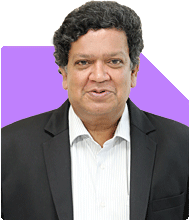Dr Ashit Hegde | Answer |Ask -Follow
Consultant Physician, Internal Medicine and Critical Care Expert - Answered on Aug 27, 2023
He is actively involved in teaching and training residents for post graduate programmes in internal medicine and critical care.
He holds an MD degree in general medicine and therapeutics from the Lokmanya Tilak Municipal Medical College, Mumbai, and an MRCP from the Royal College of Physicians, Edinburgh.... more

I get choked, burning sensation after a short brisk walk, so stopped walking, is it something to worry about the heart or Acid Reflux
Has your Lipid profile been checked ? Do you smoke ? Your symptoms could be heart related , need more details.
You may like to see similar questions and answers below
Dr Hemalata Arora | Answer |Ask -Follow
General Physician - Answered on Sep 22, 2023
Dr Vivek Mahajan | Answer |Ask -Follow
Cardiologist - Answered on Aug 17, 2023
Dr Karthiyayini Mahadevan | Answer |Ask -Follow
General Physician - Answered on Mar 27, 2024
Dr Karthiyayini Mahadevan | Answer |Ask -Follow
General Physician - Answered on Mar 27, 2024
Ramalingam Kalirajan |10893 Answers |Ask -Follow
Mutual Funds, Financial Planning Expert - Answered on Dec 15, 2025
Ramalingam Kalirajan |10893 Answers |Ask -Follow
Mutual Funds, Financial Planning Expert - Answered on Dec 15, 2025
Radheshyam Zanwar |6746 Answers |Ask -Follow
MHT-CET, IIT-JEE, NEET-UG Expert - Answered on Dec 15, 2025
Ramalingam Kalirajan |10893 Answers |Ask -Follow
Mutual Funds, Financial Planning Expert - Answered on Dec 15, 2025
Ramalingam Kalirajan |10893 Answers |Ask -Follow
Mutual Funds, Financial Planning Expert - Answered on Dec 15, 2025
Ramalingam Kalirajan |10893 Answers |Ask -Follow
Mutual Funds, Financial Planning Expert - Answered on Dec 15, 2025
Samraat Jadhav |2508 Answers |Ask -Follow
Stock Market Expert - Answered on Dec 15, 2025
Ramalingam Kalirajan |10893 Answers |Ask -Follow
Mutual Funds, Financial Planning Expert - Answered on Dec 15, 2025
Reetika Sharma |425 Answers |Ask -Follow
Financial Planner, MF and Insurance Expert - Answered on Dec 15, 2025
Radheshyam Zanwar |6746 Answers |Ask -Follow
MHT-CET, IIT-JEE, NEET-UG Expert - Answered on Dec 15, 2025



























